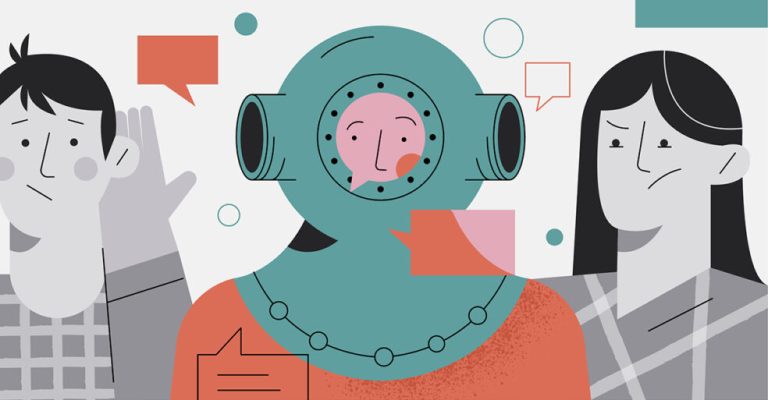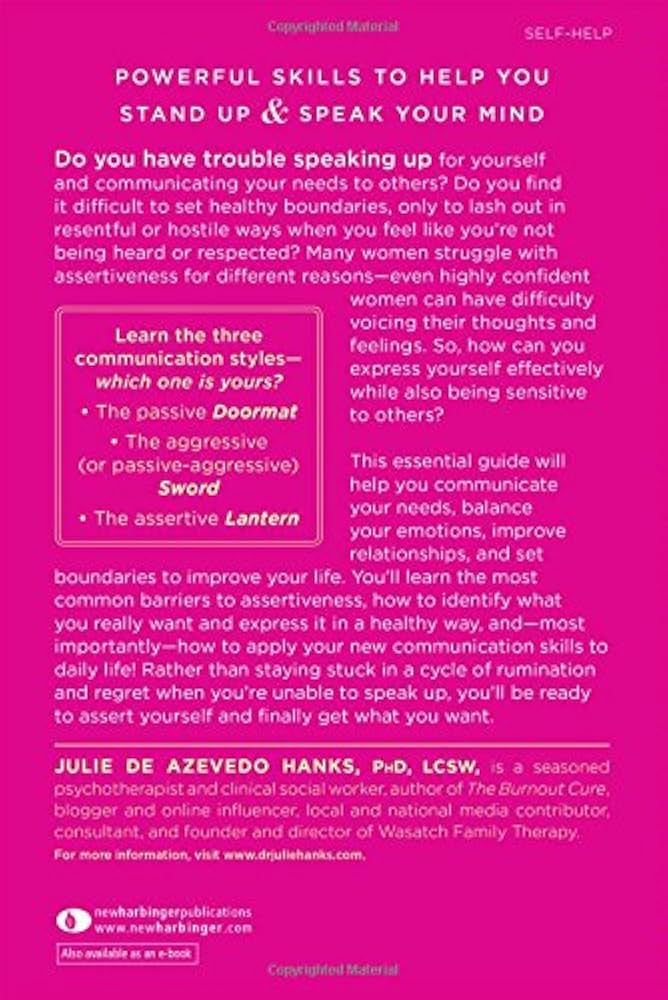Weaknesses of Communication Skills
Weaknesses of communication skills include ineffective listening, lack of clarity, and poor body language. Communication skills are crucial for success in both personal and professional relationships.
Effective communication allows individuals to express their thoughts, ideas, and emotions, leading to better understanding and collaboration. However, there are certain weaknesses that can hinder effective communication. For instance, ineffective listening can result in misunderstandings and missed opportunities for connection.
Moreover, a lack of clarity in communication can lead to confusion and ambiguous messages. Poor body language, such as lack of eye contact or closed-off posture, can also hinder effective communication by creating barriers and reducing trust. It is important to identify and address these weaknesses to improve communication skills and enhance interactions with others.
The Impact Of Weak Communication Skills On Relationships And Collaborations
Weak communication skills can have a profound impact on relationships and collaborations. When individuals struggle to effectively convey their thoughts and feelings, misunderstandings and conflicts can arise. These communication breakdowns often hinder productivity and efficiency, as messages become unclear or lost in translation.
Without the ability to communicate effectively, trust and empathy can also be difficult to establish. Building relationships requires open and honest communication, allowing individuals to understand and relate to one another. Furthermore, without effective communication, it becomes challenging to create a safe and supportive environment.
As a result, individuals may feel isolated, misunderstood, and disconnected from those around them. Developing strong communication skills is essential for fostering healthy and successful relationships and collaborations. By doing so, individuals can overcome barriers, prevent conflicts, and foster understanding and cooperation.

Credit: amycastro.com
1. Misunderstandings And Conflicts Arising From Weak Communication Skills
Misunderstandings and conflicts often result from weak communication skills. Failing to express thoughts and ideas clearly can lead to confusion. Additionally, the inability to listen and understand others’ perspectives creates barriers. Moreover, lacking nonverbal communication skills can hinder effective interaction.
These weaknesses hamper effective communication, both personally and professionally. It is essential to develop strong communication skills to avoid these setbacks. By improving clarity in expressing ideas, actively listening, and refining nonverbal cues, individuals can enhance their communication abilities. This will foster better understanding, minimize conflicts, and strengthen relationships.
Open and effective communication is vital in all aspects of life, and addressing these weaknesses is crucial for personal growth and success. Improving communication skills empowers individuals to connect with others more effectively and overcome the obstacles that weak communication may present.
2. Decreased Productivity And Efficiency Due To Weak Communication Skills
Decreased productivity and efficiency are common outcomes of weak communication skills. Inefficient exchange of information and feedback leads to misunderstandings and delays. Collaborating and problem-solving become difficult when communication breaks down. Without clarity and direction, time is wasted trying to decipher unclear instructions or objectives.
Poor communication hampers workflow and can result in missed deadlines and subpar outcomes. Enhancing communication skills is crucial for maintaining a productive and efficient work environment. By improving clarity, listening actively, and practicing effective feedback, individuals and teams can overcome these weaknesses and achieve better results.
Strong communication promotes understanding, cooperation, and smooth operations, allowing for the successful completion of tasks and projects.
3. The Role Of Effective Communication In Building Trust And Empathy
Effective communication plays a crucial role in building trust and empathy between individuals. Clear and honest communication is of utmost importance as it ensures that messages are conveyed accurately and transparently. Active listening and empathy further enhance relationships by allowing individuals to truly understand and connect with one another.
By actively listening to others, we show genuine interest and willingness to understand their perspective, fostering stronger bonds. Additionally, empathy allows us to relate to others’ emotions and experiences, creating a sense of trust and support. Moreover, in a work environment, clear and honest communication promotes a supportive and inclusive culture, where employees feel valued and heard.
By fostering effective communication, organizations can enhance teamwork, productivity, and employee satisfaction.
Frequently Asked Questions On Weaknesses Of Communication Skills
What Are Strengths And Weaknesses In Communication Skills?
Communication skills have both strengths and weaknesses. Strengths in communication skills include clear and concise expression, active listening, and effective non-verbal communication. These strengths enable individuals to convey their ideas efficiently, understand others, and build strong relationships. On the other hand, weaknesses in communication skills can hinder effective communication.
Common weaknesses include poor articulation, lack of clarity, ineffective listening, and inadequate non-verbal cues. These weaknesses may lead to misunderstandings, conflicts, and ineffective collaboration. Improving communication skills involves awareness of personal strengths and weaknesses, practicing active listening, enhancing verbal and non-verbal communication techniques, and seeking feedback for continual improvement.
By recognizing and addressing weaknesses, individuals can enhance their overall communication skills, leading to more productive and fulfilling interactions.
What Are Weaknesses Of Verbal Communication?
Weaknesses of verbal communication include the potential for misinterpretation, lack of permanence, dependency on nonverbal cues, and barriers due to language differences. Misinterpretation can occur when a message is not expressed clearly or the receiver lacks understanding. Verbal communication also lacks a written record, making it difficult to refer back to or verify information later.
Dependency on nonverbal cues can hinder communication if the receiver misinterprets or overlooks these cues. Language differences, such as accents or dialects, can create barriers to effective verbal communication. It’s important to be aware of these weaknesses and to use additional forms of communication, such as written or visual aids, to supplement and enhance verbal communication.
What Is The Weakness Of Lack Of Communication Skills?
The weakness of lack of communication skills is a hindrance in effectively conveying thoughts, ideas, and information. It limits one’s ability to express themselves clearly and causes misunderstandings. Poor communication skills can lead to conflicts, missed opportunities, and damaged relationships.
It hinders collaboration and teamwork, as well as decreases productivity and efficiency. Individuals with this weakness may struggle to listen actively, understand others’ perspectives, and resolve conflicts. They may find it difficult to build rapport and connect with others, leading to isolation and professional setbacks.
Developing strong communication skills is crucial in both personal and professional settings. It enhances relationships, promotes effective problem-solving, and helps in achieving goals. Good communication skills are essential for success in various fields and play a vital role in creating a positive and harmonious environment.
What Is A Swot Analysis Of Communication Skills?
A SWOT analysis of communication skills is a method to evaluate strengths, weaknesses, opportunities, and threats related to communication abilities. It helps individuals understand their proficiency in verbal, written, and non-verbal communication. By identifying strengths, such as effective listening and clear articulation, individuals can capitalize on these qualities.
Recognizing weaknesses, such as poor listening skills or lack of assertiveness, allows individuals to work on enhancing these areas. Opportunities, such as training programs or networking events, can help improve communication skills further. Finally, threats like misinterpretation or communication breakdowns can be addressed to mitigate their impact.
Overall, a SWOT analysis provides insights into how individuals can enhance their communication skills to succeed in personal and professional interactions.
Conclusion
To conclude, the weaknesses in communication skills can have a profound impact on various aspects of life. From personal relationships to professional success, the inability to effectively convey thoughts and ideas can hinder progress and create misunderstandings. Communication skills are not only limited to speaking, but also extend to listening, nonverbal cues, and written communication.
By recognizing and addressing these weaknesses, individuals can strive towards improvement and enhance their overall communication abilities. Developing active listening skills, practicing empathy, and cultivating clear and concise writing can all contribute to improved communication. Moreover, seeking feedback, engaging in self-reflection, and continuously learning can help identify areas of weakness and work towards constant growth.
In today’s digitally connected world, where effective communication is paramount, honing these skills can lead to better relationships, enhanced productivity, and overall success in various aspects of life.



